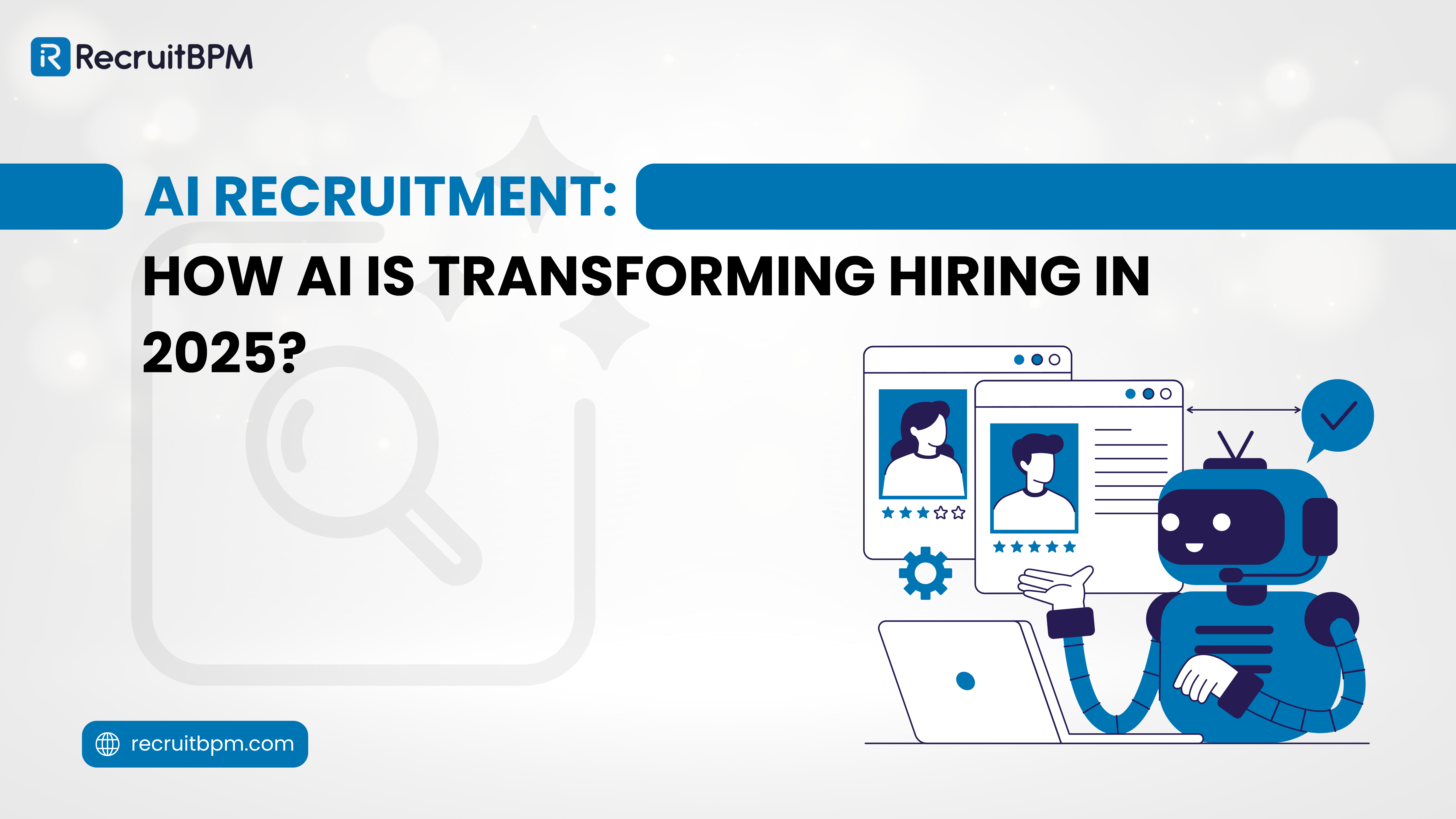The recruitment industry stands at a technological crossroads. Traditional hiring methods struggle to keep pace with candidate volume, market competition, and evolving talent expectations. Artificial intelligence emerges not as a replacement for human recruiters but as a powerful ally that amplifies their capabilities.
Recruitment agencies adopting AI-powered solutions report dramatic improvements in efficiency, quality of hire, and competitive positioning. Yet implementation requires strategic thinking beyond simply purchasing technology. Understanding what AI recruitment truly means and how to deploy it effectively separates industry leaders from those left behind.
What is AI Recruitment?
AI recruitment refers to the application of artificial intelligence and machine learning technologies to automate, enhance, and optimize various stages of the talent acquisition process. Rather than replacing human recruiters, AI augments their capabilities by handling repetitive tasks, analyzing massive datasets, and providing insights that would be impossible to derive manually.
Key Applications of AI in Recruitment
The technology encompasses multiple applications throughout the hiring lifecycle. AI screens resumes at scale, identifying qualified candidates from hundreds of applications within seconds. It sources passive candidates by analyzing professional profiles across platforms, predicting which individuals might be open to opportunities based on career trajectory patterns.
Chatbots powered by natural language processing engage candidates 24/7, answering questions, scheduling interviews, and maintaining communication that keeps top talent engaged. Predictive analytics assesses candidate success likelihood based on historical hiring data, helping recruiters focus efforts on profiles most likely to result in successful placements.
Continuous Learning and Improvement
AI recruitment also includes interview analysis tools that evaluate candidate responses, sentiment analysis that gauges engagement levels throughout the process, and automated outreach systems that personalize communication at scale. The technology learns continuously, improving recommendations as it processes more data.
Proven Benefits of AI in Recruitment
Organizations implementing AI recruiting tools with clear objectives report impressive results. Recent data shows up to a 48% increase in diversity hiring effectiveness and a 30-40% reduction in cost-per-hire when AI solutions align with strategic goals.
Why AI Recruitment Matters for Recruitment Agencies?
The recruitment landscape has transformed dramatically, making AI adoption essential rather than optional for agencies seeking sustainable competitive advantage.
Scale demands automation
Manual resume screening becomes impossible when popular positions attract hundreds of applications. Human recruiters spending hours reviewing resumes miss opportunities to build relationships and close placements. AI processes applications instantly, surfacing the strongest candidates for human review.
Speed determines success
Top candidates receive multiple offers within days of beginning their search. Recruitment agencies that respond faster win more placements. AI-powered systems engage candidates immediately, schedule interviews automatically, and maintain consistent communication without requiring constant recruiter attention.
AI analyzes patterns across thousands of successful placements, identifying which candidate characteristics predict long-term success in specific roles. These insights help recruiters make better decisions, reducing placement failures that damage client relationships.
Market penetration accelerates
The AI recruitment industry, valued at $661.56 million in 2023, is projected to reach $1.12 billion by 2030, growing at 6.78% annually. This rapid expansion indicates widespread adoption across the industry. Agencies not implementing AI fall behind competitors who deliver faster, more accurate results.
Candidate expectations evolve
Modern job seekers expect instant responses, seamless mobile experiences, and consistent communication. AI enables recruitment agencies to meet these expectations without proportionally increasing headcount. Automated systems provide the always-on engagement that today’s candidates demand.
Currently, 87% of companies use AI-driven recruitment tools, while over 65% of recruiters have already implemented AI solutions. These adoption rates signal that AI recruitment has moved from experimental to mainstream, with non-adopters facing increasing competitive disadvantages.
How to Use AI Recruitment Effectively?
Successful AI implementation requires strategic planning, thoughtful integration, and continuous optimization rather than simply purchasing technology.
Start with clear objectives
Define specific problems AI should solve before selecting tools. Are you drowning in application volume? Struggling to source passive candidates? Missing diversity goals? Different AI solutions address different challenges. Purpose-driven implementation delivers measurable returns.
Integrate with existing systems
AI recruitment tools must connect seamlessly with your applicant tracking system, CRM, and communication platforms. Disconnected tools create data silos that reduce effectiveness. Prioritize solutions offering robust integration capabilities.
Maintain human oversight
AI handles repetitive tasks and initial filtering, but human recruiters make final decisions. The technology identifies qualified candidates; recruiters assess cultural fit, motivation, and intangible qualities that algorithms miss. Balance automation with a personal touch.
Train your team comprehensively
Recruiters must understand AI capabilities and limitations to use tools effectively. Provide training on interpreting AI recommendations, overriding incorrect suggestions, and leveraging insights for better decisions. Technology amplifies skilled recruiters; it doesn’t replace them.
Personalize candidate communication
While AI automates outreach, messages must feel human and relevant. Use AI to identify candidates and determine optimal timing, but craft communications that reflect genuine interest in individual backgrounds and career goals.
Monitor performance continuously
Track metrics like time-to-fill, quality of hire, candidate satisfaction, and cost-per-placement. Compare AI-assisted processes against traditional methods. Adjust implementations based on results rather than assumptions.
Prioritize transparency
Inform candidates when AI plays roles in screening or assessment. Transparency builds trust and meets increasing regulatory requirements around automated decision-making in hiring.
Common Challenges with AI Recruitment
Despite significant benefits, AI recruitment introduces challenges that agencies must address proactively to maximize value while minimizing risks.
Algorithmic bias threatens fairness
AI systems trained on historical hiring data can perpetuate existing biases related to gender, race, age, or other protected characteristics. If past hiring favored certain demographics, AI learns and reinforces these patterns. Research shows that major language models demonstrate significant racial and gender bias when ranking resumes, favoring certain demographic groups over equally qualified candidates.
Addressing bias requires diverse training datasets, regular auditing of AI decisions, and human oversight that can identify and correct discriminatory patterns. Agencies must actively work to ensure AI enhances rather than undermines diversity initiatives.
Impersonal experiences damage relationships
40% of talent specialists worry that AI makes recruitment feel impersonal. Candidates value human connection, especially during significant career transitions. Over-automation creates transactional experiences that fail to build the relationships driving successful placements.
Balance is essential. Use AI for efficiency while preserving human touchpoints at critical moments like initial outreach, interviews, and offers. Technology should enable more meaningful human interactions, not replace them entirely.
Implementation costs create barriers
Quality AI recruitment platforms require significant investment in software, training, and integration. Smaller recruitment agencies may struggle to justify costs, especially when ROI timelines extend beyond immediate quarters.
Start with focused implementations addressing your most pressing challenges rather than attempting comprehensive AI transformation simultaneously. Demonstrate value in specific areas before expanding.
Data quality determines results
AI effectiveness depends entirely on input data quality. Incomplete candidate records, inconsistent job descriptions, or poorly structured historical data produce unreliable recommendations. Garbage in, garbage out remains true regardless of technological sophistication.
Invest in data hygiene before implementing AI. Clean existing databases, standardize processes, and establish data quality standards that ensure AI receives reliable inputs.
Technology evolves rapidly
AI recruitment tools improve constantly, making today’s cutting-edge solutions potentially obsolete within months. Keeping pace requires continuous learning and a willingness to adapt strategies as capabilities evolve.
Regulatory compliance becomes complex
Growing legal frameworks around AI in hiring create compliance obligations that vary by jurisdiction. Agencies must understand regulations governing automated decision-making, data privacy, and algorithmic transparency.

















